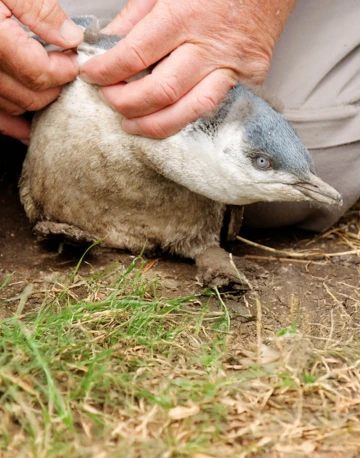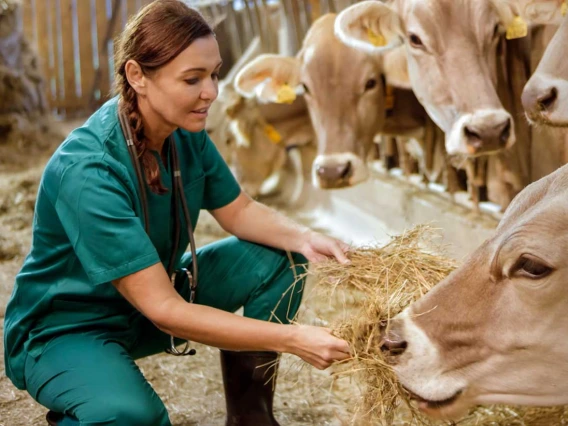Zoo and Aquarium Conservation
Undergraduate Certificate
Quick Facts

#1
In Alumni Earnings
Potential Among Arizona's
Public Universities
- Payscale, 2024
Top 1%
of all Higher-Ed
Institutions
- Center for World University Rankings, 2024
Are you passionate about wildlife and eager to contribute to conservation efforts? The Undergraduate Certificate in Zoo and Aquarium Conservation provides you with a specialized online program designed to deepen your understanding of captive animal conservation and launch your career in zoological parks and aquariums.
This program addresses a critical need in U.S. zoo biology education that extends beyond conventional wildlife management, emphasizing a broad understanding of conservation initiatives. You’ll gain practical insights into the role of zoological parks and aquariums in conservation, specifically through education and captive breeding. Core principles of traditional wildlife conservation are covered, including studying wild animals in their habitats, biology, and human-environment interactions. The program also explores species management, detailing how professionals maintain diversity, improve conditions for endangered species, and manage hunted or fished populations.
This certificate is designed for students pursuing education in zoo and aquarium conservation, individuals seeking careers in these fields, and anyone deeply committed to wildlife conservation. By enrolling in the Undergraduate Certificate in Zoo and Aquarium Conservation, you invest in a future dedicated to protecting and preserving our planet's wildlife. Ultimately, this program equips you with the specialized knowledge and skills required for a successful zoo and aquarium conservation career.
*Residents of some U.S. Territories may not be eligible. Please see our Eligibility & State Authorization page for more information.
This course will focus on current zoo and aquarium conservation and management topics. Subjects covered include captive breeding and releases, the role of education in zoos, enclosure habitat enhancement, animal behavior, handling and monitoring techniques, and other topics important in the conservation of captive wild animals.
Learn basic methods and theories of genetic/genomic analyses and how to apply these analyses to promote conservation, proper management, and long-term survival of free-ranging species. This course will also explore current conservation genetic/genomic literature.
This course reviews basic principles of animal behavior in the context of applied problems in conserving and managing wildlife populations.
This senior-level course introduces you to the ways in which society influences the distribution and abundance of animals and communities viewed as ecologically, economically, or intrinsically valuable and presents the mathematical and analytical tools available to wildlife professionals whose purpose is to understand population dynamics and manipulate the human-wildlife interface towards specific goals.
Learn concepts and principles of the mechanism, development, function, and evolution of behavior, with emphasis on its adaptiveness.
This course explores Cognitive skills that include the ability to generalize beyond specific experiences to a more abstract representation of the world, awareness of self and others, learning to use tools from other members of your species, communication, and language, and social structure and morality.
Learn the principles and processes of knowledge diffusion and methods of transferring appropriate technology to groups and communicating effectively within organizations.
(Must be completed at an AZA-accredited institution.) This will be specialized work on an individual basis, consisting of training and practice in actual service in a technical, business, or governmental establishment.
Outcomes
Skills
Earning your Undergraduate Certificate in Zoo and Aquarium Conservation will build core skills, including:
- Animal behavior
- Captive animal health and nutrition
- Captive breeding
- Captive wildlife husbandry
- Communication skills
- Conservation genetics
- Enclosure enrichment
- Handling and monitoring techniques
Potential Career Paths
Graduates of the Undergraduate Certificate in Zoo and Aquarium Conservation program will be prepared to pursue the following careers:











